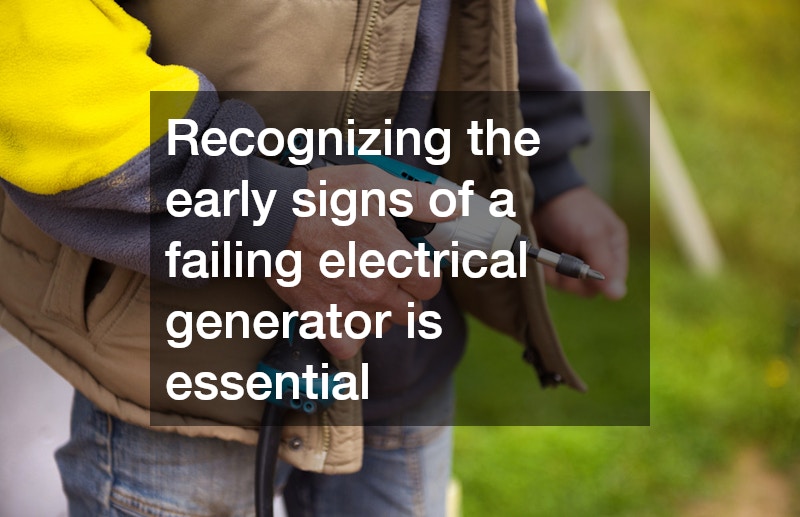What are the general signs of a failing generator?
Unusual Noises and Vibrations
Generators are designed to operate smoothly with minimum noise and vibration. If you notice any unusual sounds such as knocking, squealing, or rattling, it is a clear indicator of underlying issues. These noises can be caused by loose components, worn-out bearings, or imbalances within the rotating parts.
Vibrations may not only be disruptive but they can also lead to further mechanical damage if not addressed promptly. Regular maintenance checks can help in identifying these symptoms early, preventing any escalation.
The impact of vibrations on a generator’s performance cannot be underestimated. Constant vibrations can loosen electrical connections, which can lead to sparks or even electrical fires. Moreover, excessive vibrations often signify problems like engine misalignments or support structure failures. Addressing these vibrations immediately can save on costly repairs and extend the lifespan of your generator. Ensuring parts are securely fastened and balanced is a preventive measure against unnecessary wear and tear.
Understanding the cause of vibrations and noises often necessitates professional evaluation. Diagnostics can pinpoint whether the issue lies within the cooling system components or if there is an underlying mechanical defect. Implementing vibration-damping solutions and ensuring the generator sits on a level surface can dramatically reduce noise levels. Keeping a log of noise and vibration occurrences can also aid technicians in troubleshooting effectively. It is always wise to address these issues sooner rather than later.
Increased Fuel Consumption
An increase in fuel consumption without a corresponding increase in power output is a red flag for generator issues. This inefficiency is often a symptom of underlying mechanical problems such as clogged fuel lines or a malfunctioning fuel injector. In some cases, the generator may be running at higher loads than necessary, contributing to excessive fuel use. Monitoring fuel consumption regularly can help identify this issue early. By doing so, you can prevent potential damage to your generator’s engine and save on expenses.
Excessive fuel consumption can also indicate problems within the engine’s internal components. The air filters could be blocked or the carburetor might need adjusting. These issues not only affect efficiency but also increase the operational costs significantly. Regular cleaning and replacing of air filters can mitigate these issues, ensuring that your generator runs smoothly. Properly maintaining your generator and its components can help in reducing fuel waste.
It’s beneficial to compare fuel usage patterns over time to detect any inefficiencies early. Careful documentation of fuel consumption rates will reveal any trends or irregularities that could signify malfunction. If drastic increases in fuel consumption are observed, it may be time to consult an expert for a thorough inspection and tune-up. Taking proactive steps in repairing fuel system components can enhance performance. Long-term monitoring can ensure the efficiency and proper functionality of your generator.
Difficulty Starting
An electrical generator that struggles to start can be a major inconvenience, especially during power outages. Various factors such as battery issues, a faulty starter motor, or fuel system problems can contribute to this issue. Regular testing of the starting system, including the battery and cables, can help ensure reliability. Addressing minor starting issues promptly can prevent major disruptions in power supply during emergencies. Routine maintenance can also extend the lifespan of the starting components.
The complexity of starting issues often necessitates a comprehensive approach to diagnosing the problem, which could mean you need an electrical generator repair. Checking the condition of the battery and ensuring proper charging can resolve many starting problems. The starter motor should be examined for wear and tear, as well as any potential electrical faults. Regular inspections and maintenance can help in maintaining the starting system’s efficiency. Prompt attention to starting difficulties can prevent larger issues from developing.
Ensuring a consistent fuel supply and the cleanliness of fuel lines can also contribute to reliable starts. Contaminated fuel or blocked lines can impede the starting process. Implementing regular checks and maintenance routines allows for early detection of potential starting issues. A professional evaluation may be necessary if troubleshooting efforts do not resolve the problem. Effective maintenance and repairs can avoid costly downtime and ensure the generator is operational when it is needed most.

